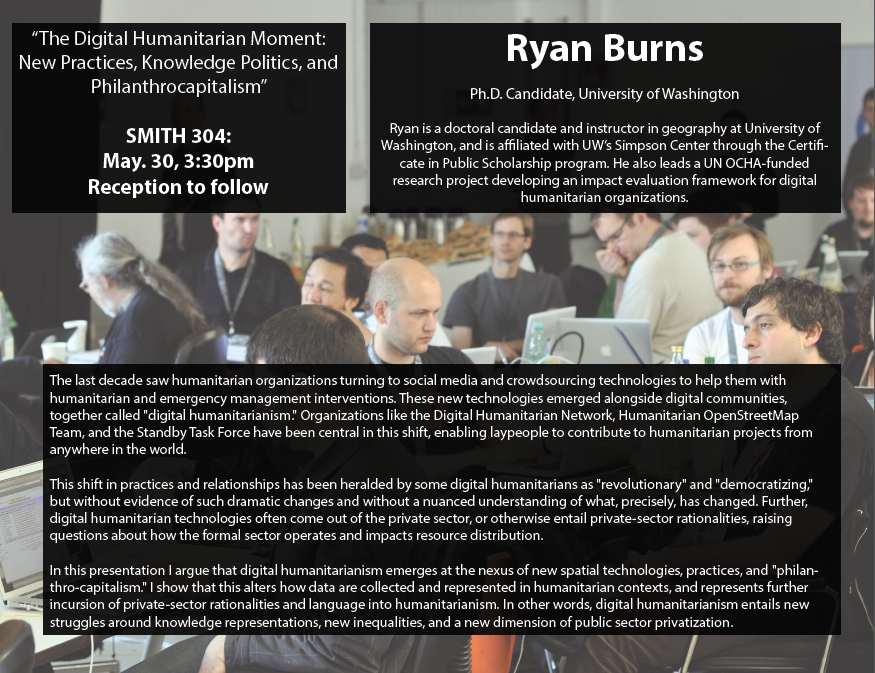Digital Humanitarianism Colloquium
This Friday, May 30th, I will be presenting my research at the Department of Geography’s colloquium. It will hopefully be my last research presentation before my defense, so I’m welcoming you all out! See below for the publicity materials and abstract.
The last decade saw humanitarian organizations turning to social media and crowdsourcing technologies to help them with humanitarian and emergency management interventions. These new technologies emerged alongside digital communities, together called "digital humanitarianism." Organizations like the Digital Humanitarian Network, Humanitarian OpenStreetMap Team, and the Standby Task Force have been central in this shift, enabling laypeople to contribute to humanitarian projects from anywhere in the world.
This shift in practices and relationships has been heralded by some digital humanitarians as "revolutionary" and "democratizing," but without evidence of such dramatic changes and without a nuanced understanding of what, precisely, has changed. Further, digital humanitarian technologies often come out of the private sector, or otherwise entail private-sector rationalities, raising questions about how the formal sector operates and impacts resource distribution.
In this presentation I argue that digital humanitarianism emerges at the nexus of new spatial technologies, practices, and "philanthro-capitalism." I show that this alters how data are collected and represented in humanitarian contexts, and represents further incursion of private-sector rationalities and language into humanitarianism. In other words, digital humanitarianism entails new struggles around knowledge representations, new inequalities, and a new dimension of public sector privatization.




